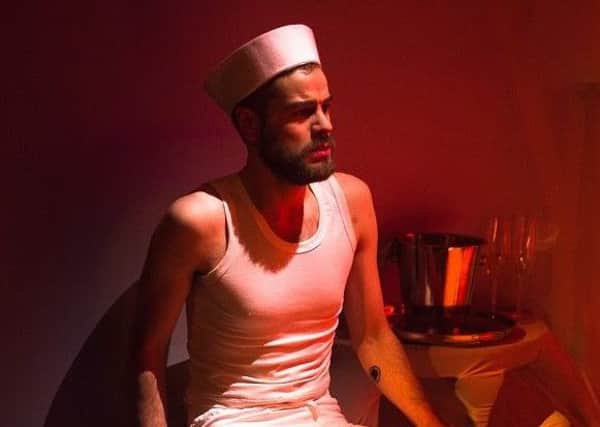Liam Rudden: Theatre needs a place to experiment and take risks


It was in Brighton, in 2014, when I was premiering Thief, my own play inspired by Genet, that I first discovered Leddy’s work.
His play Long Live The Little Knife was on at the Brighton Dome and an old friend was starring in it.
Advertisement
Hide AdAdvertisement
Hide AdAs we were both in town, the opportunity to catch up was one not to be missed, and so I settled down to watch my first Fire Exit production.
It was a thrilling piece of theatre, visceral and provoking, it was brilliantly staged and performed.
So it was with high hopes I arrived at The Traverse to watch The Last Bordello, having juggled my diary to ensure I caught it.
From the beginning there were nice touches; the programme was a scrunched up piece of paper, plucked from a bin. It featured a graphic male nude hand-drawn on either side (front and back) with typewritten credits annotated by spidery handwriting.
Advertisement
Hide AdAdvertisement
Hide AdA piece of new writing, the remit of The Traverse more so than any other Capital theatre, The Last Bordello was a co-production between Fire Exit, Leddy’s Company, and the Tron Theatre.
Set in 2018, it tells the story of Mitri, ‘a sweet young terrorist’ intent on loosing his virginity in order to save his life. But will he escape the brothel alive?
There he meets an eclectic assembly of characters, the heavily pregnant Virtue, the ebullient Madame, the lesbian maid Irma, Fassbinder the sailor, and Darling, the lovable lady of the night. None of whom are quite what they seem.
Throwing in elements of the Latin mass and the ‘secret’ Sixties gay slang Polari, while addressing such extreme topics as the fetishisation of sexual abuse, the fragility of masculinity and the most notorious red light district in history, Barcelona’s Barrio Chino, the piece is a mish mash of consciousness that is not always coherent.
Advertisement
Hide AdAdvertisement
Hide AdSome of this is due to the script, much down to the laboured nature of one or two of the performances, and a lot down to the set design.
Tackling Genet means, by default, tackling degradation, his signature. He lived a squalid existence which is reflected in all his works.
A bright, clean, clinical set, never quite captures the darkness of the material Leddy is exploring upon it. If the intention is to provide a juxtaposition, it only serves to alienate.
And yet, for The Traverse, The Last Bordello is a success. A risk has been taken, as is always the case with any new piece of writing.
Advertisement
Hide AdAdvertisement
Hide AdThat risk is important, and despite its failings I’m grateful to have had the opportunity to see The Last Bordello, to enter into the discussion, one I’m sure will continue through future productions.
For ground-breaking theatre to flourish we need The Traverse to keep taking those risks.
You never know when they might just stumble upon a new classic.
@LiamRudden